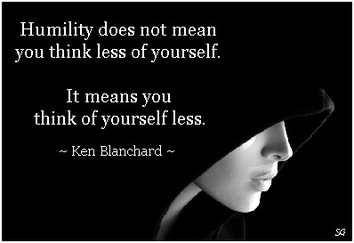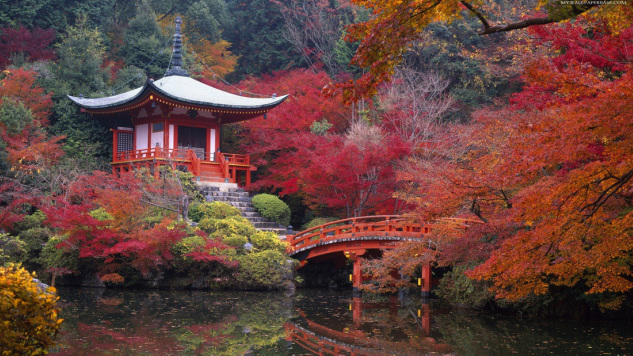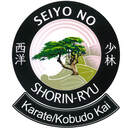 "There are many people out there who accomplish a little bit and decide that they are an expert. Humility is knowing what you don’t know." ~ Mark Manson (The Psychology of Life) In the martial arts world, I have noticed a trend with different practitioners and karate instructors. There appear to be two types of people, type A and B.
Type A, are the people who have a big mouth, who regularly talk about the things they have accomplished, they exaggerate their success and point out their trophies and belt ranks. Type A demands attention from those around them. They often dole out their sage wisdom to anyone and everyone who will listen. Then there is Type B, who downplay their successes or doesn't even mention them. Type B often admits when they don't know an answer, they aren't afraid to say when they make a mistake. They ask questions and learn from those in ranks below them and ahead of them. They regularly examine their own weaknesses and strive for constant improvement. They say very little, but demonstrate much through their actions. Although they may hold a very high rank in their primary martial art, they could be seen strapping on a white belt to learn a second, third or fourth martial art. The trend appears to be that the Type A's are only moderately successful in their martial arts. They may have had some accomplishments, but they had never achieved true master status or respect within the martial arts community. Where the Type B's are usually found to be legitimate masters in their art often with very high ranks. Not only were Type B's successful in their primary martial art, but in other arts as well. The Type B's had climbed to very peak of the martial arts community and achieved great respect from those around them. Taking on a type B attitude, pun intended as reference to the Beatitudes, is necessary for true success. This humility separates the wheat from the chaff. If you look through history and even the present, the greatest martial artists all have a humble spirit. Although many may not be widely known, they are at the top of their craft. They are male and female martial artists that have great knowledge, amazing levels of skill, true passion for their art and an ability to share their wisdom with others in ways that make their students passionate about the martial arts. Perhaps you don't have a deep desire to be a life-time martial artist. You can take these "Type B" traits and be a leader in any field, trade or industry. In summary, those traits are:
2 Comments
 In today's martial art world, it seems the type of arts that get the most attention are the sports schools like MMA (Mixed Martial Arts), Tae Kwon Do and JuJitsu schools. I have found that although many of these schools have students (and instructors) that are technically and athletically quite good, it saddens me to see some of them have lost the essence of the martial way. I realize this isn't all martial arts schools, but I have seen a trend that has lead many martial artists away from the true meaning of karate do. The Martial Way, also called Budo, means "knowledge as a way to improve ones life and the life of others." Budo is a way of living and a way of dying. Let's look back to ancient Samurai warriors, they lived a dangerous life in which they were very aware that each day could be their last. Death was always in mind, day and night, with the understanding that with their great skill and importance as protectors of their community that they had a great responsibility. They lived each day as if it were their last day. Like the knights of the renaissance period, Samurai's followed a code of moral principals. This code of conduct or way of Samurai life was called Bushido or "the way of the warrior." Bushido tampered the violent existence of the Samurai warrior with wisdom and serenity. This code, is often unwritten and passed on verbally to be recorded on one's heart as a moral compass for living life. As a martial artist of today, I believe Bushido is still a vital part of our training. We are learning techniques that could severely injure, maim or even kill another human life. Without a strong moral compass to guide us, we risk being a danger to society. I believe that Bushido should still be taught in all martial arts schools. I feel so strongly on this that I believe students who do not exhibit the moral compass of Budo in their life should be restricted on what training they receive in the martial arts. The last thing an instructor wants to hear is that a student has become a trained bully or worse, a trained killer. If you aren't familiar with Bushido, here are the seven tenets that most martial arts circles believe were used by the Samurai: 1. Justice / Rectitude / Right Decision 2. Bravery / Courage 3. Benevolence/ Charity 4. Respect/ Courtesy 5. Honesty 6. Loyalty / Faithful / Devoted 7. Filial Piety (respect for your parents and ancestors) I believe it is our duty, as martial artists, to ensure the Budo code isn't forgotten. We should do this not just with words, but through living out the tenets and traveling the Martial Way. Honor, is an interesting word. If you look it up in the dictionary, It means many things. However, the definition that comes closest to how I view honor is through the word integrity. Integrity is a firm adherence to a code of especially moral or artistic values. A quality or state of being complete or undivided... Completeness, incorruptibility, soundness.
Temptation can lead to a compromise of integrity and honor. A person of honor has good character, decency, goodness, honesty, morality, rectitude, righteousness, rightness and virtue. A person who lacks honor is evil doing, immoral, unfair, exhibits iniquity, is sinful, wicked and generally has a character of wrong doing or badness. If someone is honorable, they are not disposed to cheat, defraud or deceive another human being. Living an honorable life is not something that just happens – it is something that must be carefully and continually sought after. So, what are some examples of ways to lead an honorable life?
|
AuthorVashon Borich-Leach, Sensei teaches traditional karate and tai chi in Branson, Missouri. She considers herself a life-time student of the arts. Her blog is an open journal of lessons learned in the martial arts. If you are a martial artist and would like to contribute to her blog please contact her. Archives
May 2023
Categories
All
©2012 Branson Karate & Kobudo™
|
©2010-2024 Vashon Enterprises LLC, DBA Branson Karate™
 RSS Feed
RSS Feed

